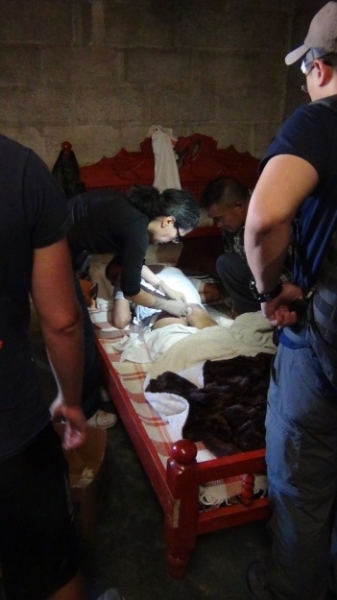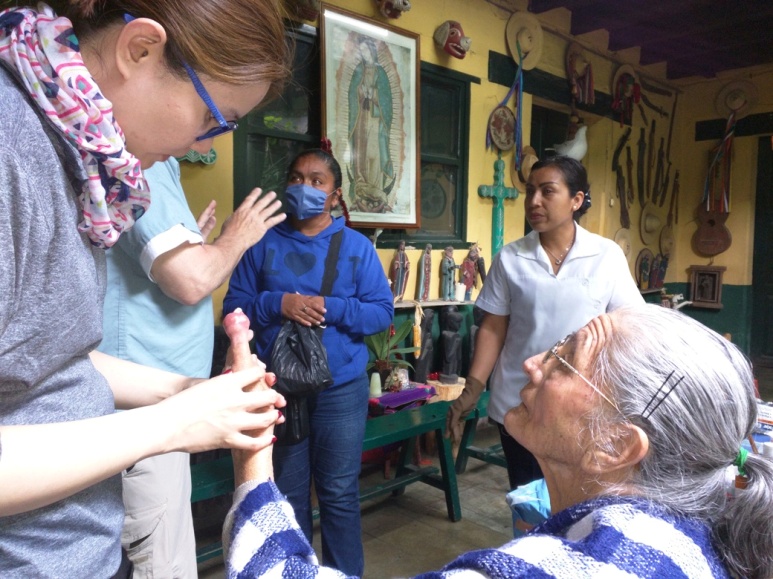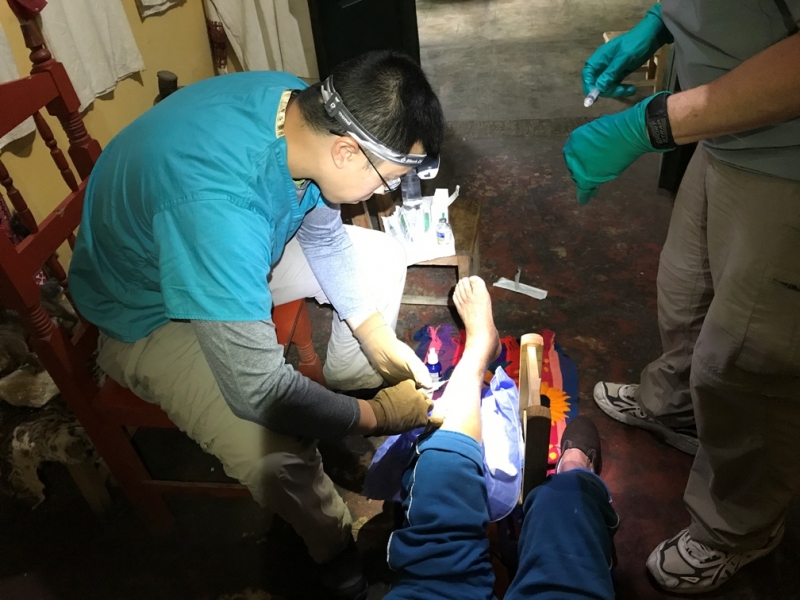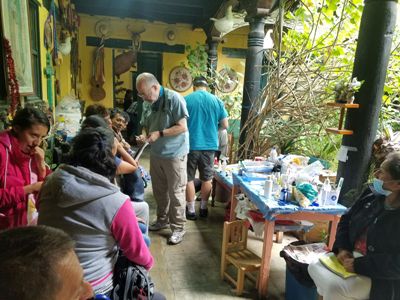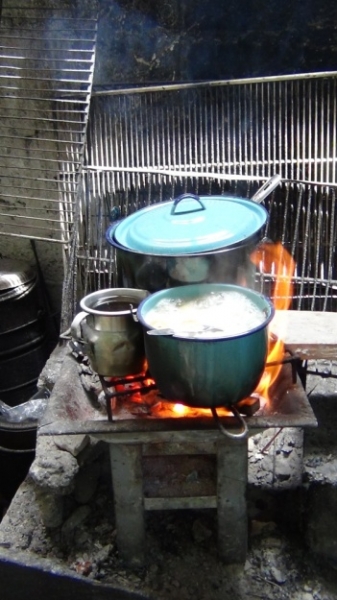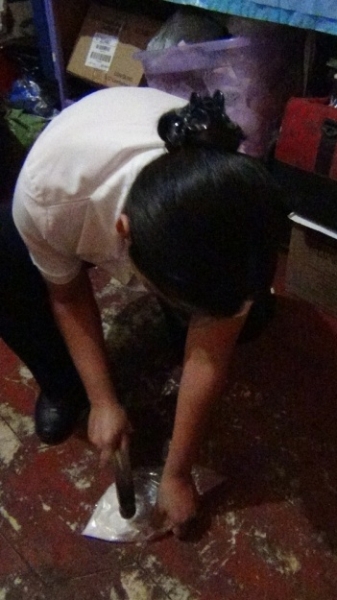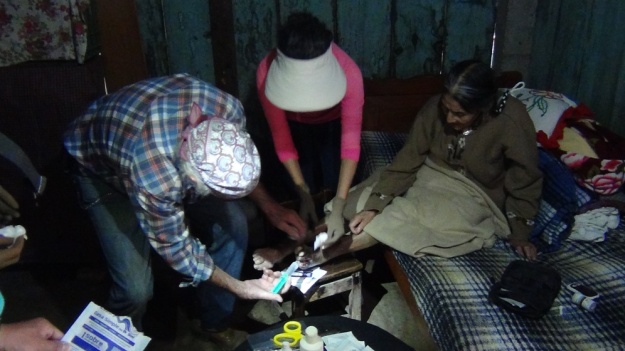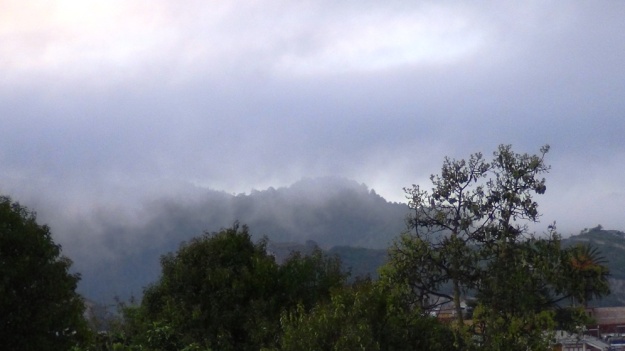 Mayans speaking their indigenous languages and wearing their colorful traditional dress, Zapatistas intermittently blocking roads and occupying the zocalo (central city square), abandoned 8th century cities and pyramids, awesome mist-covered mountains, great food, and a cool climate (during Tucson’s heat extremes). That does not sound much like my typical developing world experience – but it was.
Mayans speaking their indigenous languages and wearing their colorful traditional dress, Zapatistas intermittently blocking roads and occupying the zocalo (central city square), abandoned 8th century cities and pyramids, awesome mist-covered mountains, great food, and a cool climate (during Tucson’s heat extremes). That does not sound much like my typical developing world experience – but it was.
As part of a five-person team, including two wound-care experts, I recently spent two weeks caring for severe wounds and burns, as well as other medical problems, under the auspices of Don Sergio Castro, in the indigent indigenous community in Chiapas, Mexico. The team, organized by Pat Ferrer, a dermatology/wound care physician assistant who helps support the Chiapas operation, was mostly drawn from the volunteer clinicians working at Tucson’s Clínica Amistad, a facility for primarily Spanish-speaking medically indigent patients. It included Vivian Shi, MD, a UA dermatologist and wound-care expert, her husband, Kheim Tran, PhD, a second-year UA medical student, Pat’s nephew who will enter medical school this fall, and me.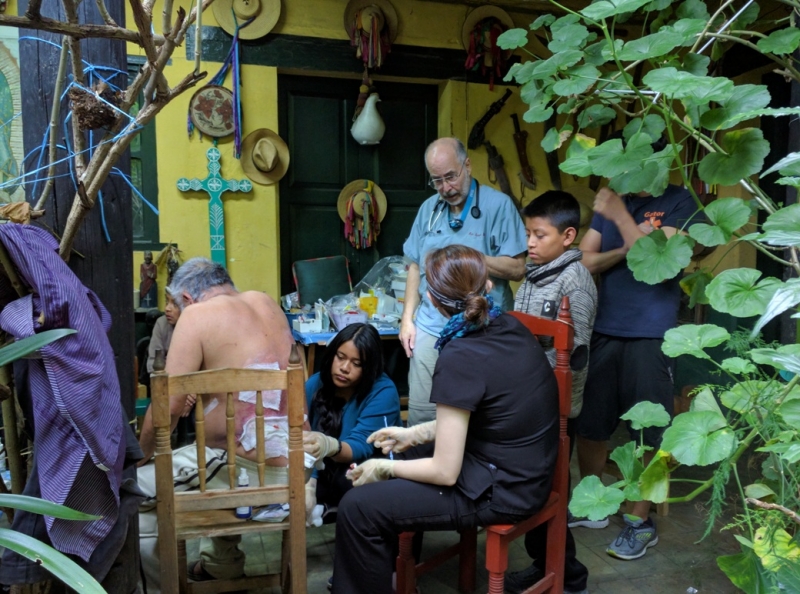
As Pat noted, each day felt like two full workdays. Starting early, we first did home calls in the city and outlying Mayan communities. Working in both Spanish and one of the two regional Mayan languages, Tzeltal and Tzotzil (Don Sergio speaks both), we cared for patients in subsistence communities who were too ill or injured to get into the clinic. Typical patients included those paralyzed from accidents or medical disasters and those suffering from extensive diabetic- or vascular-induced wounds. Our wound-care supplies were those we could carry on our backs, sometimes hiking to get to the patient’s home.
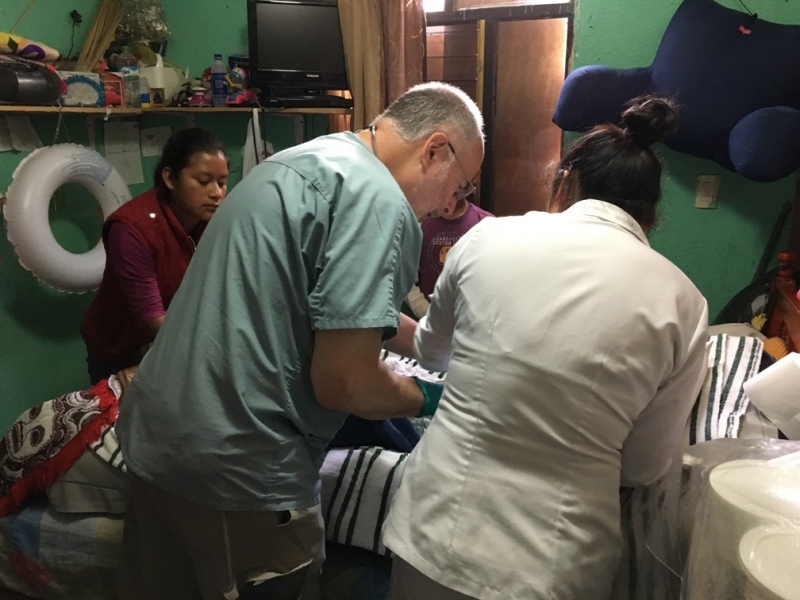 In the afternoon and evening, we helped staff the makeshift clinic outside the small museum used to help support the operation. Patients, who were seen in the order that they arrived, ranged in age from infants (usually suffering burns from hot water boiled over open fires) to the very elderly. Some injuries were minor; others required weeks of daily care. The medical supplies were an amalgam of donated materials from multiple sources and those we improvised; there usually seemed to be barely enough supplies to care for our patients.
In the afternoon and evening, we helped staff the makeshift clinic outside the small museum used to help support the operation. Patients, who were seen in the order that they arrived, ranged in age from infants (usually suffering burns from hot water boiled over open fires) to the very elderly. Some injuries were minor; others required weeks of daily care. The medical supplies were an amalgam of donated materials from multiple sources and those we improvised; there usually seemed to be barely enough supplies to care for our patients.
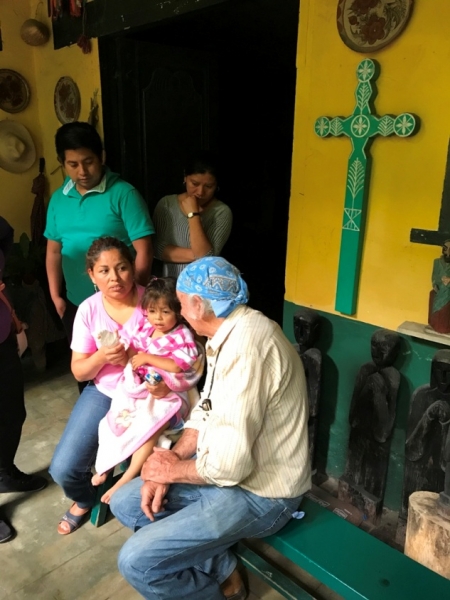 Don Sergio Castro, a remarkable man who has been doing this work for 50 years, first came to Chiapas as an agronomist. With some veterinary training, he quickly abandoned his government job to help build schools and sanitation systems, and to care for wounds in the Mayan communities. While he came from a wealthy background, he lives frugally, having spent most of his funds on his work. Watch a fascinating 2013 New York Times video about Don Sertio and his work.
Don Sergio Castro, a remarkable man who has been doing this work for 50 years, first came to Chiapas as an agronomist. With some veterinary training, he quickly abandoned his government job to help build schools and sanitation systems, and to care for wounds in the Mayan communities. While he came from a wealthy background, he lives frugally, having spent most of his funds on his work. Watch a fascinating 2013 New York Times video about Don Sertio and his work.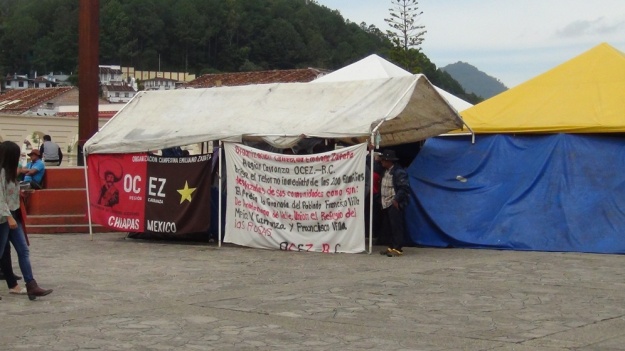
Over the years, many clinicians and groups have assisted him. Pat Ferrer has helped him financially and on-site for many years. On this trip, I had the opportunity to assist in an ongoing, sustainable effort for an indigent population. As a side benefit, I was able to learn a great deal about wound care from experts—and, of course, the weather was great!
Kenneth V. Iserson, MD, MBA, FACEP, FAAEM
Fellow, International Federation of Emergency Medicine
Professor Emeritus, The University of Arizona
